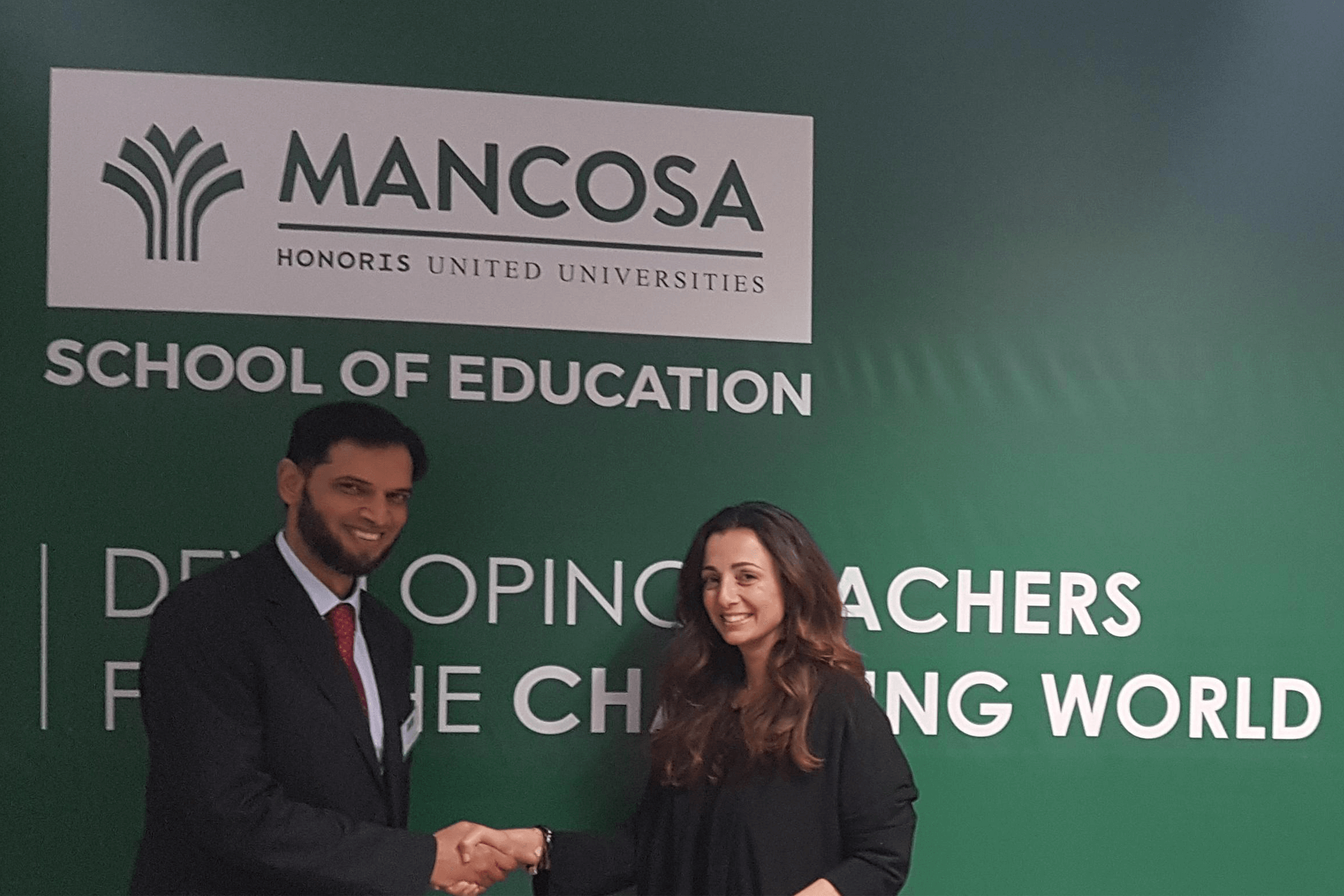BUILDING CAPACITY IN STEM EDUCATION
Currently, 21% of young Africans are educated in the private sector; however, there is a funding gap estimated at between US$16bn to $18bn. The private sector has and will continue to play a significant role in filling this gap. Relying on consistent and quality teaching, private institutions can create greater access through the expansion of pan-African networks in traditional settings and via alternative methods, such as distance education or online learning.
As a regional network, Honoris has delivered at scale, high standards of education across borders and programs. In key areas, such as health science engineering, and education, Honoris has been part of a rapid step-change in the availability of graduates capable of contributing to their communities.
Honoris has placed itself as a leader in STEM education, with leading North African engineering schools EMSI and ESPRIT, growing from 5,200 total enrollment in 2018 to 20,400 in 2021 at a +58% compound annual growth rate (CAGR). Engineering/ IT now has grown from representing 16% total enrollment in 2018 to 34% total enrollment in 2021.
Read more
Honoris places itself at the forefront of innovation in IT by adding new programs such as Artificial Intelligence, Data Science, Fintech, Cyber Security as well integrating coding as the new second language through the platform with the Honoris 21st Century Certificate (see link) as well as virtual internship pilots with EdTechs.

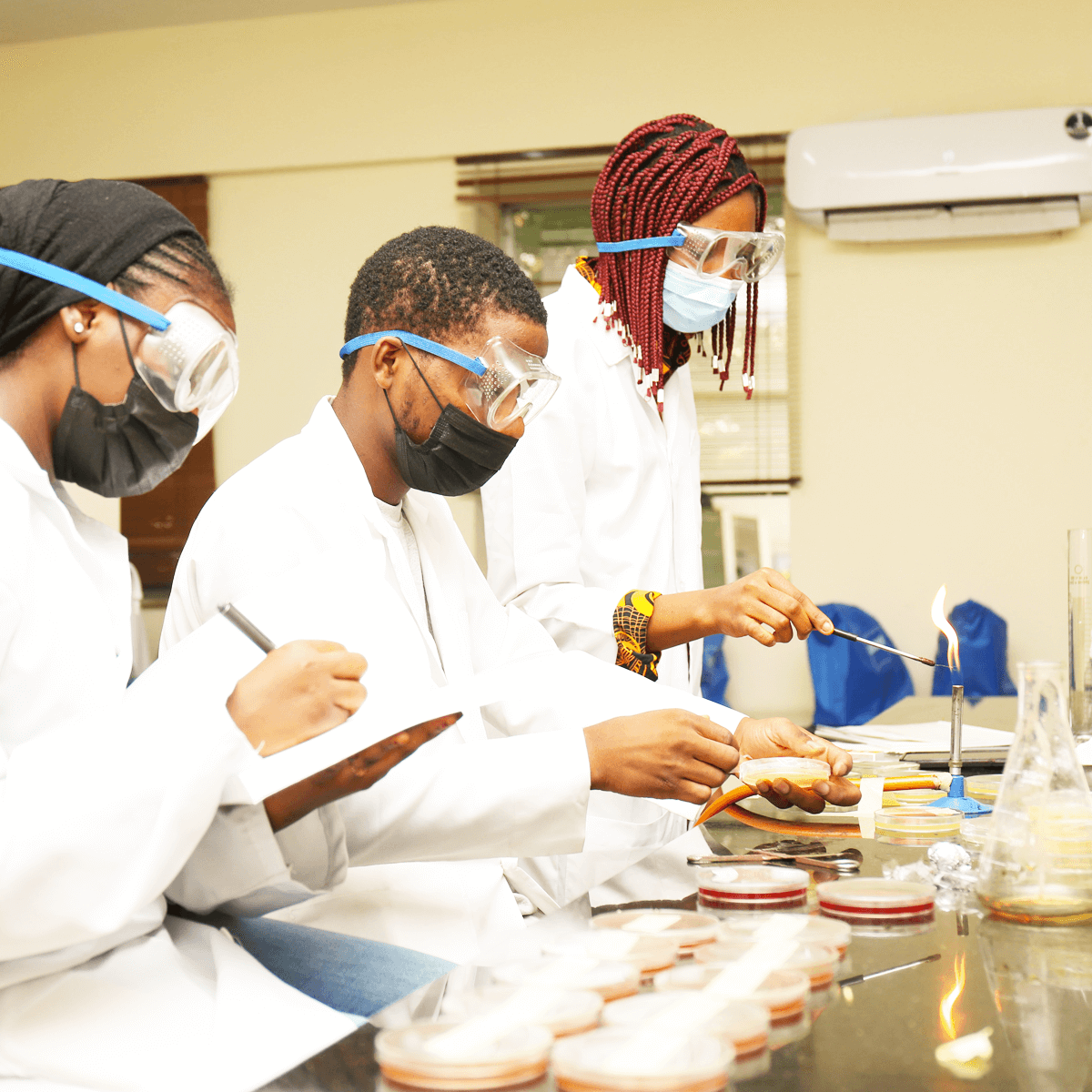
BUILDING CAPACITY IN HEALTH EDUCATION
 Nigeria
Nigeria
The World Health Organization recommended ratio of doctor to patient is 1:600. In Nigeria, a country with a population exceeding 200 million citizens, this ratio is 1:5000. Nigeria is in dire need of skilled health workers to meet the country’s health care needs.
The management of Nile University of Nigeria (NUN) recognised the need to provide support in terms of human resources for the Health sector in Nigeria.
The College of Health Sciences was established in 2016 as part of the desire of the University to extend their investment in Medical and Health Sciences. In the space of 5 years, the university has made exceptional progress:
- The Medical and Dental Council of Nigeria (MDCN) approved the First Clinical aspects of the MBBS (Bachelor of Medicine) program.
- The increment of the admission quota from 50 to 100 has also been approved, after careful evaluation of the quality of staff, facilities, and training at the College.
- The National Universities Commission (NUC) also visited Nile University of Nigeria in March/April 2021 and granted Full NUC Accreditation for its MBBS (Medicine and Surgery) and LLB Law programs.
These accreditations are significant milestones in NUN’s quest to offer top-quality programs and instruction to equip students for success. They also reflect Honoris’ focus on the provision of high-quality programs which are relevant to students and the communities they will impact.
 Tunisia
Tunisia
Over the last 4 years, the public sector in Tunisia has not been able to provide additional seats in the health vertical. On the other hand, the private sector has overall provided 270 additional seats. Our health schools in Tunisia, pioneers in paramedical studies (UNIVERSITÉ CENTRALE Health School & UPSAT), have successfully supplied a capacity of 700 additional seats over the last four years.
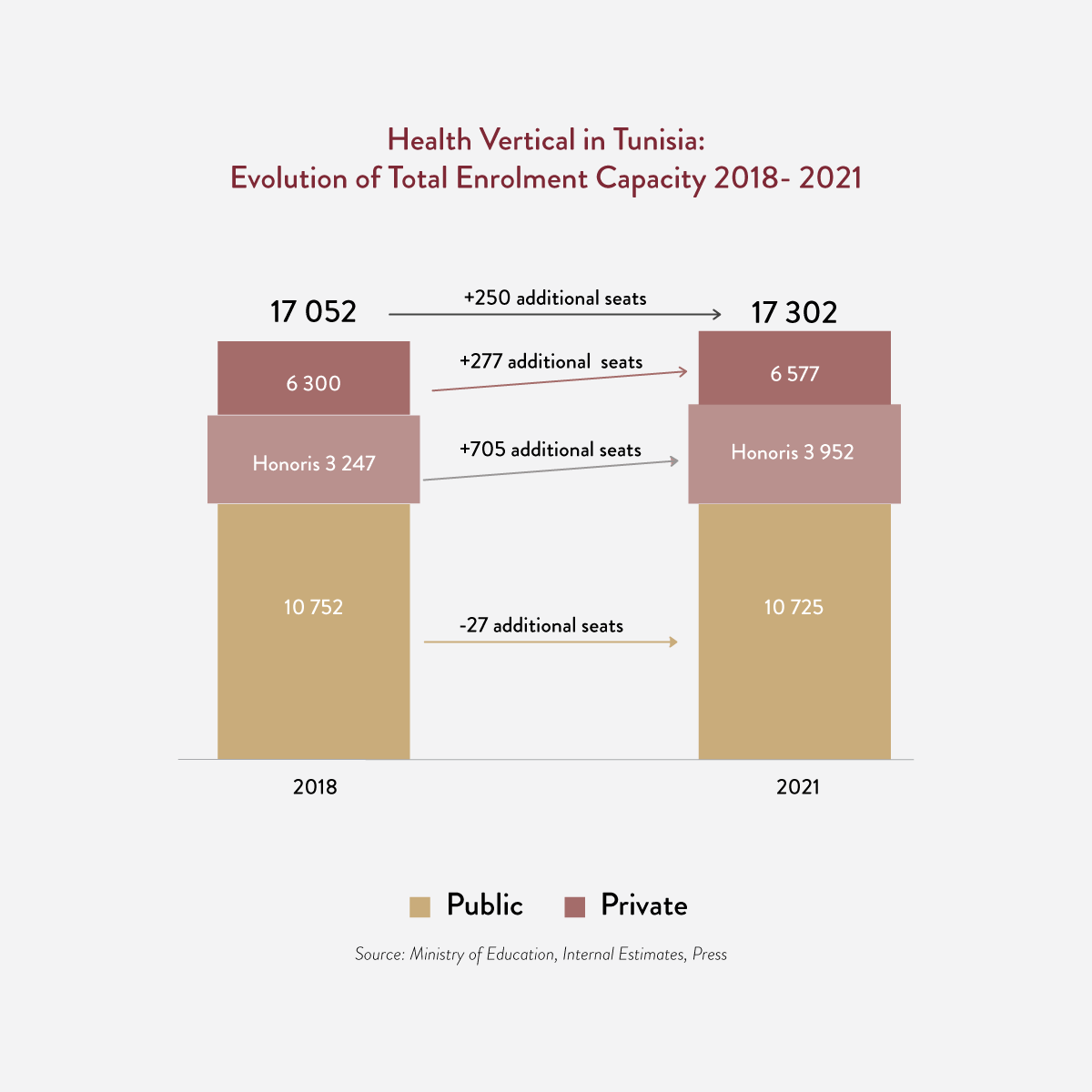
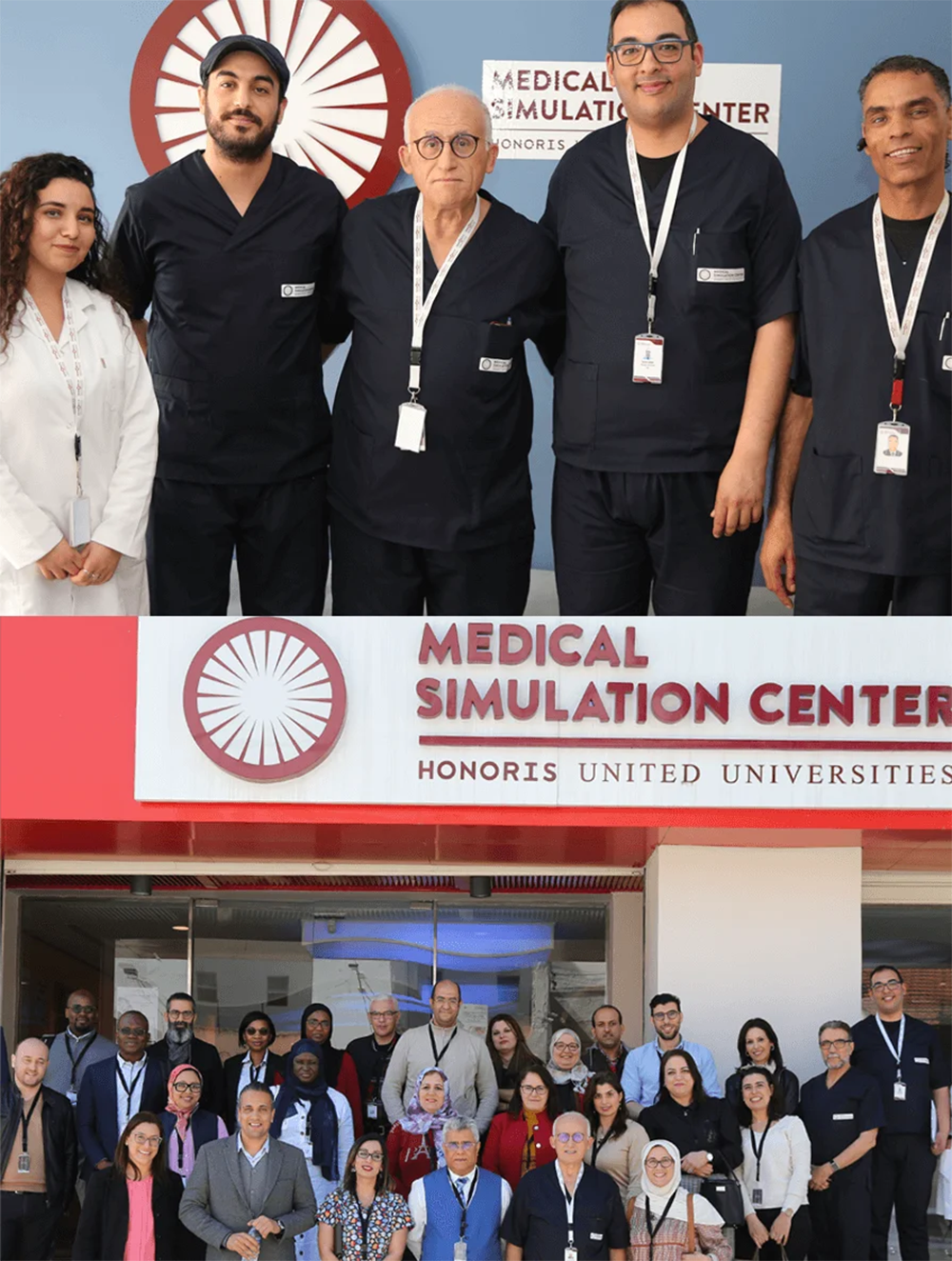
BUILDING CAPACITY IN ENGINEERING AND IT EDUCATION
 Tunisia
Tunisia
The public sector in Tunisia has not been able to expand in the Engineering/IT vertical with capacity decreasing by 1,400 seats, or -10% since 2018. In contrast, the private sector was able to provide over 5,200 seats of additional capacity since 2018. Honoris Tunisia (UNIVERSITÉ CENTRALE Polytechnique and ESPRIT), with the largest Engineering School in Northern Africa, provided over 3,400 of those seats.

 Morocco
Morocco
The public sector successfully expanded the capacity in Engineering/IT vertical by 4,000 seats in Morocco in the last 4 years. With even more momentum, the private sector provided over 10,000 seats. Honoris Morocco played a key role in this capacity expansion in the private sector (Mundiapolis Eng/IT & EMSI), with the leading engineering school and largest private institution in Morocco contributing to almost 4,000 of those seats.
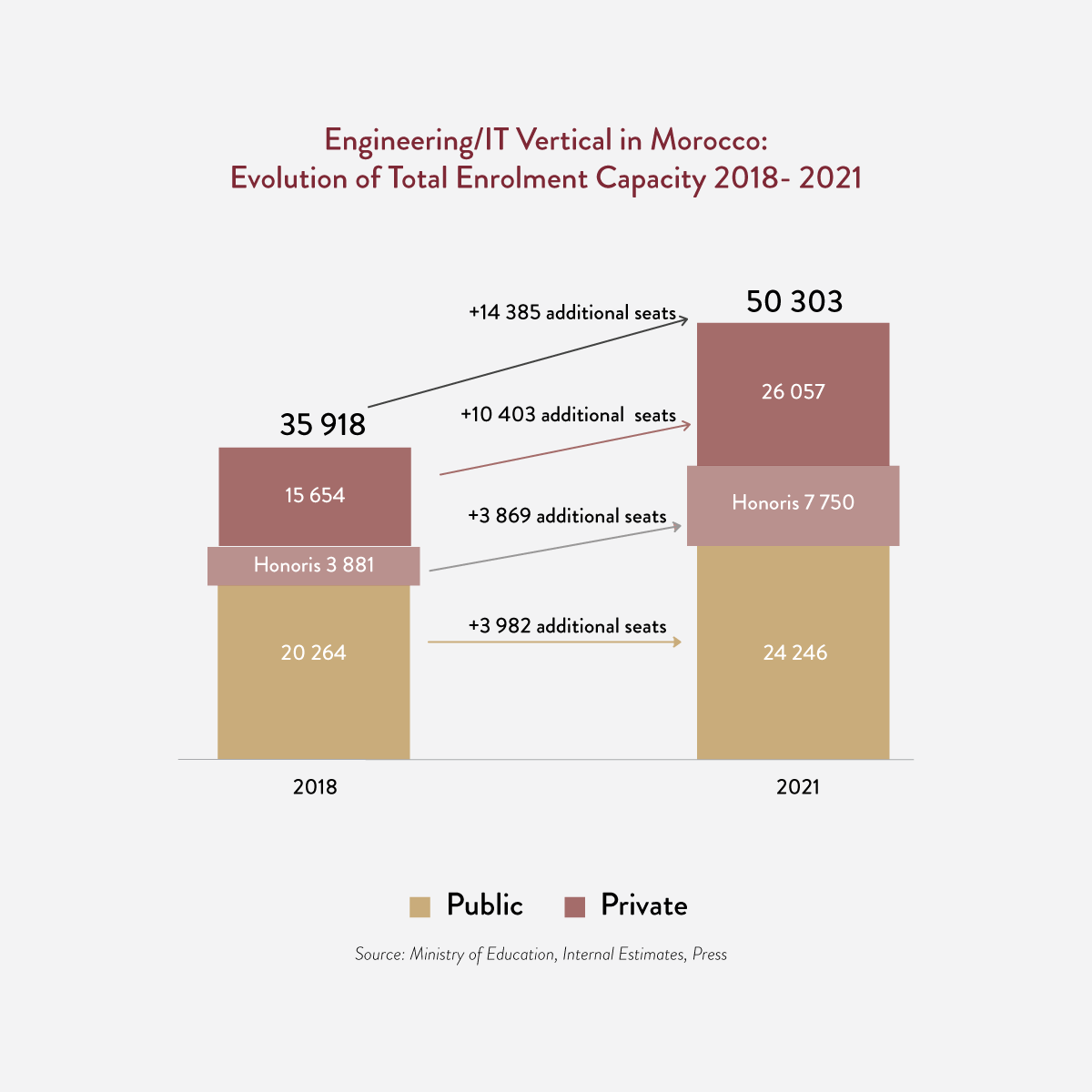
BUILDING CAPACITY IN TEACHER EDUCATION
School of Education MANCOSA
The demand for skillful teachers, who can address the complexities of the 21st century is fast outpacing supply. To respond to this gap in the market, MANCOSA created the MANCOSA School of Education three years ago, with the vision of responding to evolving education and training needs of dynamic economies.
In South Africa, the demand for teachers outstrips supply with 20,000 to 30,000 new qualified teachers needed each year just to replace the teachers leaving the system and maintain current teacher-pupil ratios.
Read more
Since inception, MANCOSA has trained nearly 500 education professionals, contributing to closing the gap in the market offering formal education programmes and training aimed at school administrators.
By organizing co-op or multi-track programs and semesters abroad within the Honoris network and their partnerships, Honoris’ vision to connect students across its network of universities will be realised. It is clear that the developments and achievements of one institution will, in the long run, benefit all other institutions and their students.
